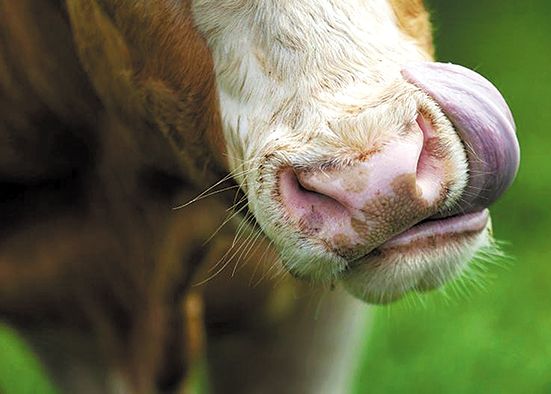Vigilance urged over rise in Bluetongue Virus cases
Vigilance urged over rise in Bluetongue Virus cases
6 August 2025

LIVESTOCK farmers in Lecale are urged to stay vigilant as cases of Bluetongue Virus surge in England and risk spreads to Ireland.
As the summer heats up, so does concern over Bluetongue Virus (BTV) – a disease that affects sheep, cattle, and other ruminants, but not humans.
The virus, spread by biting midges, has seen a rise in cases this season, prompting movement restrictions in affected areas and renewed calls for vigilance.
What is Bluetongue Virus?
Bluetongue is a viral disease transmitted by Culicoides midges. It does not spread directly between animals, but through bites from infected insects. The disease can cause severe illness in sheep, while cattle often show milder symptoms but can still carry and spread the virus.
Symptoms in livestock include:
Fever and lethargy
Swollen face and tongue (sometimes blue in colour)
Nasal discharge
Lameness and weight loss
In extreme cases, death
Situation in 2025
Over 260 cases of BTV-3 have been confirmed in England, leading to a nationwide restriction zone. Farmers must now follow strict movement rules, and testing is required for animals being transported within or out of affected areas.
In Ireland, authorities are on high alert. Warmer weather and wind-borne midges from Britain and Europe increase the risk of introduction. An easterly wind blowing from Cumbria would pose a risk to Lecale livestock.
Control measures
Vaccination: three vaccines for BTV-3 are now approved for use in the UK. DAERA has lots of useful information on their website regarding vaccination.
Movement restrictions: livestock movement is regulated to prevent spread.
Surveillance: farmers are urged to report symptoms immediately. Bluetongue is a notifiable livestock disease.
Advice for farmers
The vector (midge) season runs from April to November, with peak midge activity in the warmer months. Farmers should:
Monitor animals closely for symptoms
Avoid unnecessary movement of livestock
Consult vets about vaccination options
Public impact
While Bluetongue does not affect humans, its impact on agriculture can be severe. Reduced productivity, trade restrictions, and
animal welfare concerns make it a serious issue for rural communities.
For more updates, visit DAERA’s website or contact Downe Vets (www.downevets.com).


